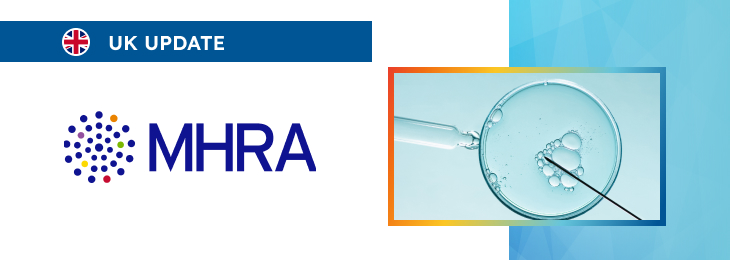The article highlights the key points associated with the concept of common specification requirements for certain products allowed to be marketed and used in the UK.

Table of content
The Medicines and Healthcare Products Regulatory Agency (MHRA), the UK regulating authority in the sphere of medical devices, has published a consultation document dedicated to common specification requirements for in vitro diagnostic medical devices. The document provides an overview of the applicable regulatory requirements, as well as additional clarifications and recommendations to be taken into consideration in order to ensure compliance thereto.
At the same time, the authority reserves the right to make changes to the guidance and recommendations provided therein, should such changes be reasonably necessary to reflect corresponding amendments to the underlying legislation.
Introduction
The present consultation is vitally important for Great Britain’s healthcare system due to the critical role that in-vitro diagnostic medical devices (IVDs) play in ensuring accurate and timely medical decisions. The IVD industry has rapidly advanced, prompting the MHRA to focus on developing the future regulatory framework for these devices.
On June 26, 2022, the MHRA published the government response to the public consultation on the future regulation of medical devices in the United Kingdom. Since then, key achievements by the MHRA include establishing an Innovative Devices Access Pathway pilot, providing guidance on Software as a Medical Device, and implementing regulations for IVD devices in Northern Ireland.
These regulations aim to establish proportionate penalties, grant the MHRA the authority to issue compliance notices for breaches of IVD regulations in Northern Ireland, and enhance the tools available to ensure patient safety. The primary objective of the document is to ensure that the new regime for medical devices prioritizes patient safety, thereby preserving the trust patients have in the GB healthcare system.
This consultation presents an opportunity to ensure that the future regulation of medical devices is centered on patient safety by establishing proportionate regulation. The consultation seeks views on potential amendments to the Medical Devices Regulations 2002 to include Common Specification requirements for manufacturers of high-risk IVD devices.
This builds on public feedback from an initial consultation in November 2021 and aims to inform further policy decisions in this area. The scope of this consultation is specific to the Common Specification requirements for high-risk IVD devices.
The proposals provide additional details of the essential requirements for these devices, expanding on those discussed in November 2021. The response to the consultation outlined intentions to align with the General Safety and Performance Requirements (GSPR) in the In Vitro Diagnostic Medical Device Regulation 2017/746 (IVDR), updated in 2022 to include Common Specification requirements for certain high-risk IVD devices.
According to the document, the Common Specification requirements include scientifically stringent criteria for COVID-19 test devices, exceeding current requirements in Great Britain, which were added to the Medical Devices Regulations 2002 by the Medical Devices (Coronavirus Test Device Approvals) (Amendment) Regulations 2021. Therefore, views are also sought on the removal of current Coronavirus Test Device Approvals (CTDA) requirements to avoid regulatory duplication and unnecessary burden on IVD businesses.
As explained by the MHRA, ongoing engagement with key stakeholders in the IVD industry and with patients is essential to ensure wide representation and transparency in policy decision-making. It is critical to ensure that patients have access to safe IVD devices and that the regulation is risk-proportionate, beneficial, and of a high standard.

Regulatory Background
The in vitro diagnostic medical device industry is a vital component of the UK’s healthcare system, contributing significantly to accurate and timely medical decisions. IVD devices are used to examine samples taken from the human body, including saliva, blood, tissue, and urine.
They are essential for diagnosing and monitoring health conditions such as flu infections, glucose levels, hepatitis, etc. Examples of IVD devices include pregnancy tests, blood glucose meters for monitoring diabetes, and HIV testing kits.
In Great Britain, IVDs are currently regulated by the Medicines and Medical Devices Act 2021 and the Medical Devices Regulations 2002. Under the terms of the Windsor Framework, Northern Ireland continues to follow EU regulations for IVD devices, specifically the IVDR.
On March 21, 2024, the Medical Devices In Vitro Diagnostic Devices etc. Amendment Regulations 2024 came into force, introducing provisions required for implementing the IVDR in Northern Ireland.
According to the Medical Devices Regulations 2002, an IVD device cannot be placed on the market or put into service in Great Britain without an affixed UKCA marking, with some exceptions such as custom-made devices and CE-marked devices. Manufacturers must ensure their products meet relevant regulatory requirements before placing them on the market or putting them into service.
Medium to high-risk IVD devices (class B, C, and D devices under the future IVD classification system) must undergo conformity assessment from a UK Approved Body to demonstrate compliance with the relevant regulatory requirements, before a UKCA marking can be affixed. This involves demonstrating conformity to the required standards and providing information to support performance claims, often derived from performance studies of the device.
Once a medical device is on the market, manufacturers must continue to assess the safety and performance of the IVD device, a process known as “post-market surveillance”. Manufacturers are also required to report certain incidents involving the IVD device to the MHRA, a process known as “vigilance”.
More information about existing requirements for placing an IVD device on the UK market can be found in the relevant MHRA guidance. It is also important to mention that the present consultation does not cover the regulation of the entire lifecycle of an IVD device but focuses on pre-market approval of IVD devices, specifically the technical requirements for certain high-risk IVD devices that manufacturers must demonstrate conformity with before receiving a UKCA marking.
Policy Objectives
According to the document, the development of a future regime for IVD devices is intended to enable:
- Improved patient and public safety
- Greater transparency of regulatory decision-making and medical device information
- Close alignment with international best practices
- More proportionate regulation of medical devices
The MHRA invites members of the public, including patients, medical device researchers, developers, manufacturers, suppliers, clinicians, and other healthcare professionals, to provide their views on the introduction of common specification requirements to the regulatory framework for IVD devices in Great Britain.
Conclusion
In summary, the present consultation paper published by the MHRA describes the regulatory approach the authority intends to apply with respect to IVD devices intended to be marketed and used in Great Britain in order to ensure their proper performance, as well as the accuracy and reliability of the test results. The document emphasizes the key aspects of the said regulatory approach, initiating public discussions around the matters raised therein.
How Can RegDesk Help?
RegDesk is an AI-powered Regulatory Information Management System that provides medical device companies with regulatory intelligence for over 120 markets worldwide. It can help you prepare and publish global applications, manage standards, run change assessments, and obtain real-time alerts on regulatory changes through a centralized platform. Global expansion has never been this simple.

